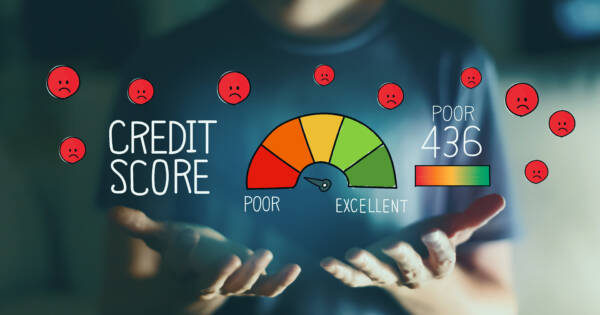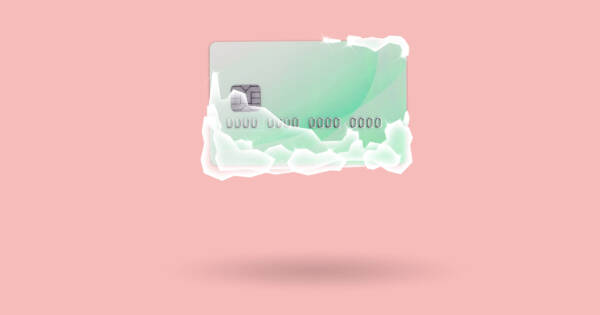Finances can be a precarious thing, even at the best of times. With the current uncertainties of the global economy, some credit card companies are taking steps to protect themselves. You need to keep a close eye on your accounts, because they decisions could affect your personal financial situation. In some cases, credit cards are actually reducing previously offered credit limits. Yes, even to existing customers. A recent study from CompareCards found that one-quarter of respondents said their credit limit was decreased (or their card was closed completely) in the past month. The site estimates that nearly 50 million credit card customers may have been affected by similar decisions.
The truly alarming piece of data, though, is that almost half of those surveyed had no idea their credit card could make that decision. To set the record straight: yes, your credit card company can likely reduce your credit limit with no notice. They can also cancel your card completely, if they choose.
Federal law states that they must give you 45 days notice if they plan to change your interest rate. However, there is no such requirement for changing your credit limit or cancelling your account.
How Did This Happen?
The current situation is having a negative effect on credit card companies. The Wall Street Journal reports that roughly 1% of Capital One card holders have entered customer assistance programs due to reduced income or job loss. While 1% may not seem like a lot, keep in mind that Capital One has issued 120 million cards. And that doesn’t even include the other popular credit card companies in America.
On top of that, consumers simply aren’t spending at their current rate. Sport and concert tickets aren’t for sale (or are in the process of being refunded). Big ticket items like airline tickets and vacation packages aren’t selling, for obvious reasons. Even smaller charges, like dinner at a fancy restaurant or a night of bar hopping, have dried up. It all amounts to a dramatic drop in revenue for credit card companies. In response, credit card companies are re-defining how they view risk.
“There’s a lot of outstanding available credit out there now that didn’t seem risky a month ago, but seems super risky now,” said Matt Schulz, chief credit analyst at Lending Tree (who own CompareCards). “When unemployment spikes and the economy takes a sharp turn, all the calculus changes for banks.”
“A lot of people are having credit limits yanked out from under them when they need them most,” Schulz continued. “If you’re relying on a credit card to get to your next paycheck or unemployment check and your limit is suddenly a lot less, it can cause you some real trouble.”
What You Can Do About It
The first thing you should do is remain calm. A reduced credit limit isn’t the end of the world. It’s also important to not take it personally. Your account is just one line on a ledger of 100 million others. Your credit card company probably didn’t target you for any particular reason. That’s good news, because it might mean you can reverse the decision.
Call Them
Contact your credit card issuer, either by phone or in writing. Ask the politely to reconsider the decision to cut your credit limit. They may ask about your employment status. However, if you still have your job, a decent credit score, and a good credit history, they may reverse the cut. After all, it’s possible your account just got lumped in with a bunch of others as credit card companies try to reduce their risk.
Establish Better Credit
Besides trying to fix the problem after it’s already happened, there are some preventative measures you could take too. In this situation, namely, try establish a higher credit score. If you do, your credit card provider is less likely to consider your high credit limit a risk. There are a bunch of ways to raise your credit score. However, we should warn you that it’s not a fast process. It usually takes months (or years) of responsible financial behavior to reflect on your credit score.
It’s almost always worth the effort, though. Having a better credit score means you won’t get lumped in with “riskier” borrowers. So when banks are looking to tighten things up (like say, in the middle of a pandemic), your name probably be on their list.
Compare Offers
If your credit limit has been cut, you don’t have to just accept it. There are a ton of credit card providers out there who want your business. If asking your credit card company to reconsider their decision doesn’t get anywhere, it’s time to consider your next steps. You can shrug and accept their decision, dealing with a lower credit limit. Or you can leave for greener pastures.
Do some research on competing cards. See if any of them are willing to offer you a card with your old credit limit. As an added bonus, they may also offer you a balance transfer offer or a big rewards gift as a new customer. Even if you ultimately decide not to switch (after all, having that long credit history matters to your score too), you’ll have more information about your available options.
Switch To The Competition
If you can’t shake the feeling that your credit card company betrayed you by suddenly dropping your limit, then maybe it’s time to break up for good. Your provider already showed you where their loyalties lie, and it wasn’t with you. So why should you continue to be loyal to them?
Evaluate your options and offers from our last section. Then take the plunge. Score a lower interest rate, or better rewards, or a higher credit limit. Most major credit card companies are really just the same thing with different names attached. So if you’re annoyed with your current provider, go find another one who will treat you better.
One Potential Advantage
This is where the whole concept of credit gets a bit weird. A lot of factors make up your credit score, including credit limits, credit usage, and credit utilization. On the surface, it seems a bit counter intuitive. When you apply for new credit, lenders want to see you having a history of credit — but not really using the credit you’ve been given.
In the case of asking for a huge amount of credit, like applying for a mortgage, having lower credit limits can actually help you out. Some potential mortgage lenders will consider you financial situation if you end up maxing out your available credit card. They will crunch the numbers to see if you’ll still be able to make your mortgage payments if both your credit cards are completely tapped out.
Based on those credit limits, you could end up with a lower mortgage approval amount. You could also be denied outright. We know, we know. It seems backwards. If you can responsibly handle a credit card with a limit of $50,000, you’d think mortgage lenders would see that as a good sign. However, they tend to have “worst case scenario” lines of thinking. So if you max that $50,000 card out, will you default on your mortgage? To some lenders, it’s not worth the risk. If your credit card had a limit of only $10,000 though, the calculations could change.
Going Forward
The credit cards most likely to have their limit reduced (or be closed) are ones that are rarely used. If you hardly use your card, or have a second “emergency only” card, make a point to use it regularly. You don’t have to spend big, though. Put a couple monthly subscription services on it. Or only use it to buy gas, ensuring you pay off the balance right away. It’s important to show a little bit of activity on your card. It could be the difference between your provider yanking away your credit or simply leaving your account alone.
 Shutterstock
Shutterstock







